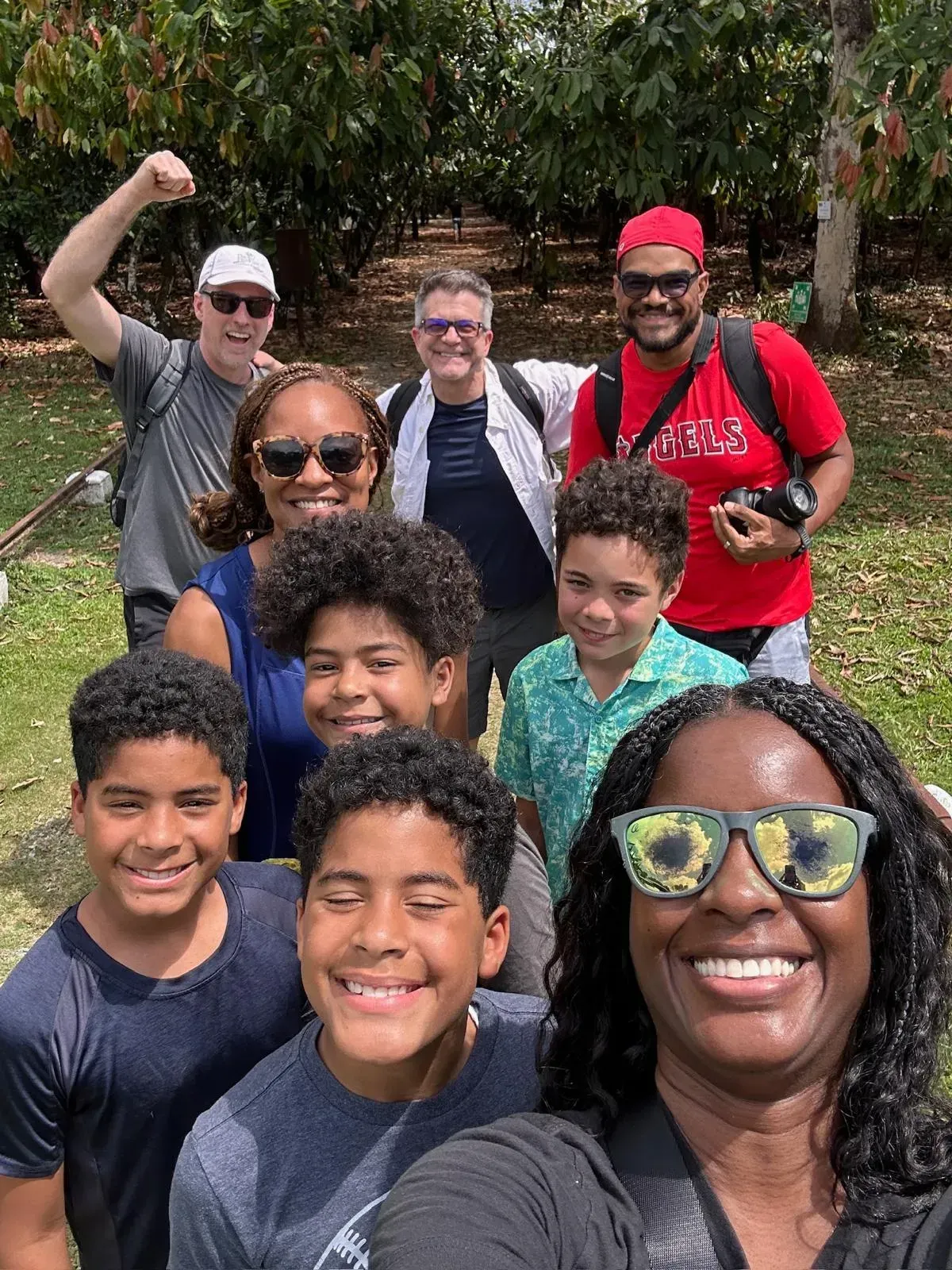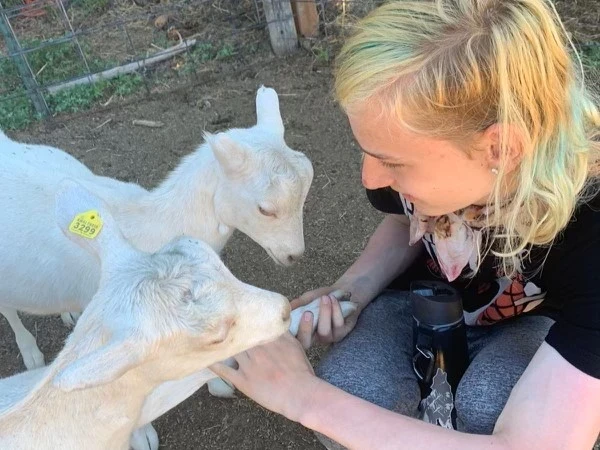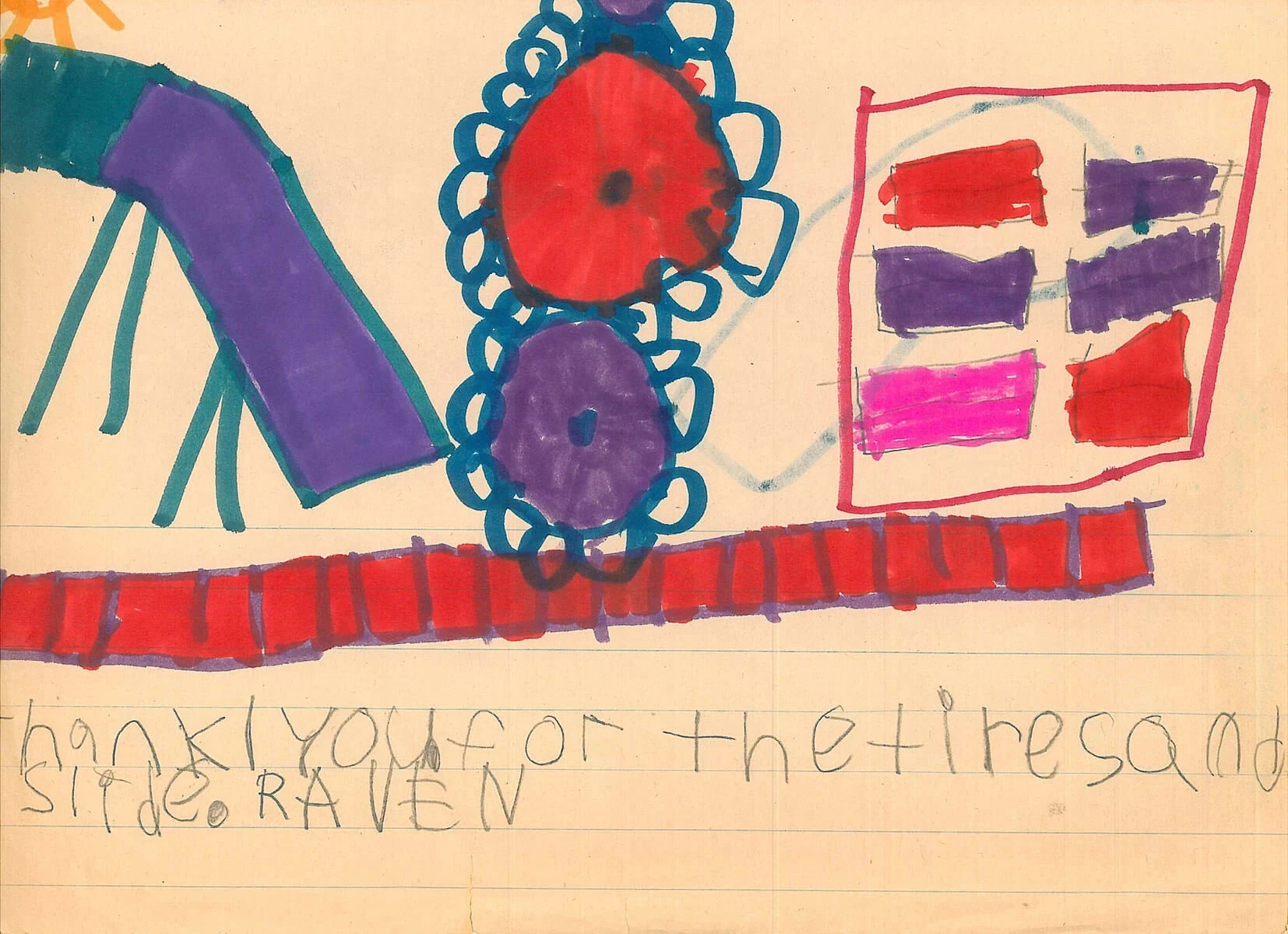A Teen Volunteer Looks Back at Two Very Different VISIONS Summers
Serial VISION-ary Ariel Kim joined VISIONS for two summers in a row, first on the Montana Blackfeet Indian reservation in 2012, and then in Ghana (a program that’s currently on hold) in 2013. Although both teen programs shared the same VISIONS philosophies, she found the overall experiences to be uniquely different. Here, Ariel explains the life lessons she took away, the non-profit she helped conceive afterwards, and how it all fits into the many layers of her busy life today.
What kinds of community service projects did you focus on during your VISIONS trips?
In Montana, we constructed a stage on the Blackfeet Native American Reservation. In Ghana, we finished a roofing job, volunteered at a children’s hospital, and painted the walls of a dormitory at a center for disabled children.
What was it like doing two VISIONS programs? Did you feel more prepared the second time around?
My two trips were so different from each other; they’re incomparable. In both cases, it was equally incredible to be in such a wonderful place and equally terrifying to be so far out of my comfort zone. The only things that carried over from Montana to Ghana were my hiking boots and my sleeping bag! Everything else was a brand new experience. But, I was prepared to be unprepared, I guess. I knew the gist of what a VISIONS trip was like, so I knew that I needed to be ready for whatever might come my way.
What kinds of things did you take away from your VISIONS experiences?
I made a lot of memories that I would never have been able to make anywhere else. I also made a lot of friends from around the world. These experiences and people have opened my mind and my eyes to so many more things about the world. For me, the main theme of both of my VISIONS trips was perspective.
I also learned a lot about working with others, flexibility, and resourcefulness. All good life skills.
What are you up to now?
Right now, I’m a junior at Phillips Exeter Academy in New Hampshire. As far as academics go, I’m in the middle of writing a 15-plus page research paper, and my topic is Winnie the Pooh! I’m also taking Calculus, English (we’re reading Hamlet), Spanish, and Mysticism. Mysticism is super intriguing.
For activities, I’m dancing in the PEA Dance Company; I’m playing the oboe in the Chamber and Symphony Orchestras; I’m part of some of the Exeter Social Service Organization (ESSO), community service clubs on campus, and a part of the ESSO Student Board of Directors; I’m working as the Editor-in-Chief of the school’s yearbook; and I’m a Head Tutor with our school’s Peer Tutoring program.
Other than that, I’m working on my Girl Scout Gold Award, which is a project on neurodevelopmental/ neurodegenerative disorders and diseases. I’m also co-founder of Ark’s Foundation, which is a non-profit with the goal to raise the money necessary to build a school for children with physical and mental disabilities in Ghana. Check it out at www.arksfoundation.org.
How did your VISIONS experience help prepare you for where you are now and what’s still to come?
As I mentioned earlier, I learned a lot of life skills on my VISIONS trips; things that I wouldn’t have learned in a regular classroom or even in my day-to-day activities. There’s something to be said for taking yourself outside of your comfort zone and experiencing a whole new kind of world. You come out changed, definitely for the better. I’m more adaptable and flexible in new environments, and my people-skills are so much better than they were three years ago. VISIONS has helped to shape me into the person I am today. I can navigate the world with a better head on my shoulders, and I can more fully enjoy whatever my life throws me.
In what ways, big or small, would you like to change the world?
I want to work to make children better understood. We think we understand how kids work, but we really don’t. We grow up, and we forget what it’s like to be a kid trying to navigate this big and sometimes-scary world. Especially for kids with disabilities, whether mental, developmental, or physical; they’re trying to navigate a world that wasn’t even made with them in mind, a society which has defined a “normal” that excludes them. I want to work with these kids, get to really know them, and help the world to understand and be more accepting of them. Kids are also people, just littler people. I’ve always been able to stay in touch with my inner child, and I think that’s an important part of being able to survive and thrive.
What do you hope to be doing in 10 years?
Job-wise, I want to be working with kids with disabilities. Rest-of-my-life-wise, I’d like to be reading lots of books and drinking tea and dancing and maybe traveling a bit.






